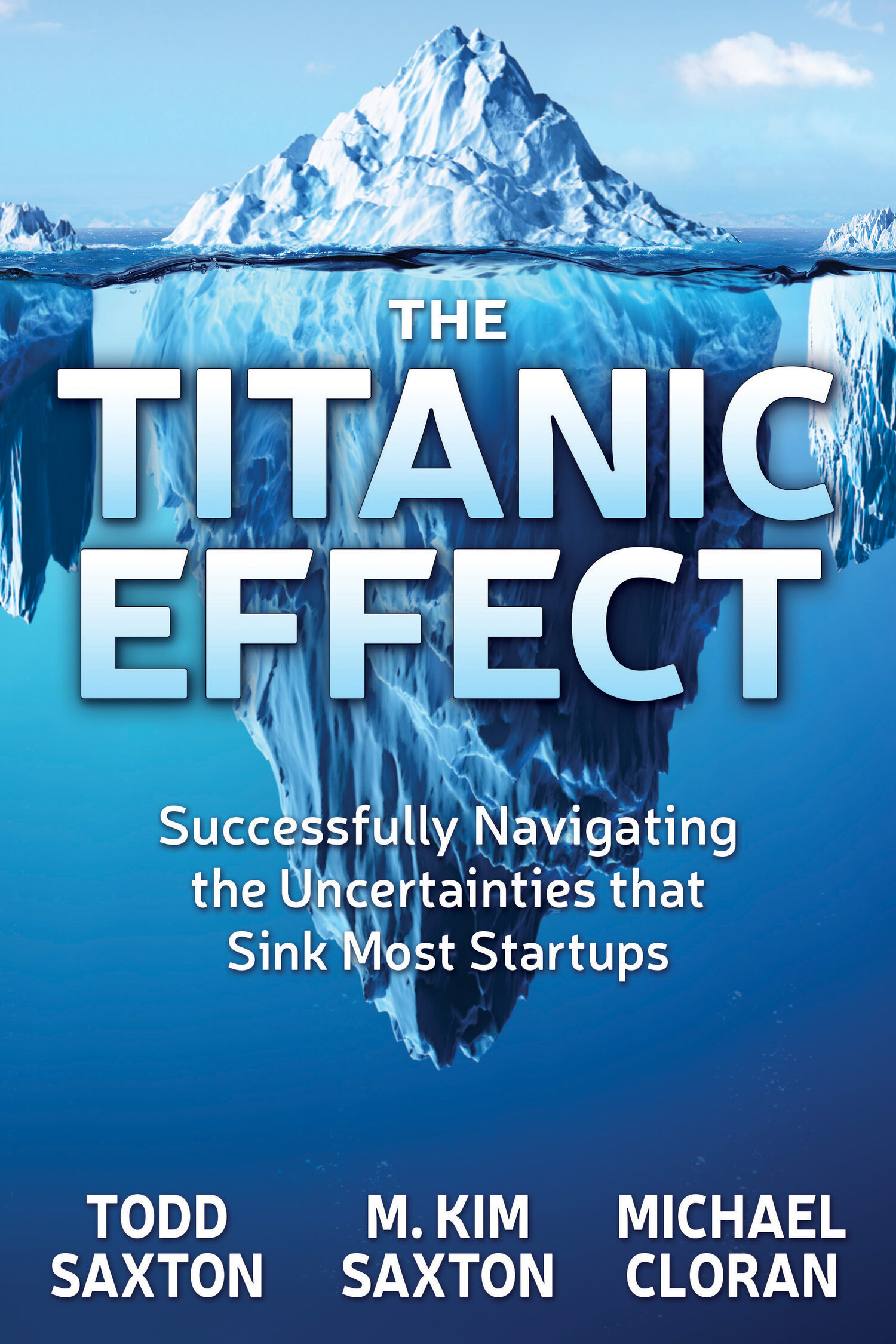We’ve all heard the phrase, “You can’t manage what you don’t measure.” But after reviewing several dozen startup updates and seeing blogpost after blogpost with lists of metrics, it feels like a founder could spend a significant amount of time just compiling and tracking metrics. Every investor has their favorite metric. So, many startups end up monitoring nearly everything. Or, the opposite – monitoring nothing.
The Most Important Marketing Iceberg by Startup Stage
We’ve started doing workshops using key ideas from our book, The Titanic Effect: Successfully Navigating the Uncertainties that Sink Most Startups. The goal of these workshops is to help startups identify which icebergs can be the biggest challenge by startup stage. Because, the primary tasks a startup undertakes changes by stage. So too, do the challenges they face.
What to Look For in Startup Advisors
It’s clear that startups cannot “go it alone.” First, a founder needs to be coachable - learn more about coachability at our previous blogpost on Foundersplaining. They need supporters to help them get connected to employees, customers and investors. If you want to understand more about how and why supporters (we call them venture advocates) help startups, check out our academic article – Venture Advocate Behaviors and the Emerging Enterprise.
Startups: Want to get Feedback and Advice? Avoid “Foundersplaining.”
It Takes a Village…or at Least a First Podcast!
Well actually, it takes a venture ecosystem to help startups flourish. Our academic research explores venture ecosystems and how founders can create positive momentum, even when they don’t have a lot of financial resources. The reality is that founders must rely on the help of many others in the venture community to get feedback
Positioning: What Makes You Different and Better?
In an earlier post about marketing strategy, we suggested that there are 3 key questions startups need to answer:
Who are you talking to? That’s your Target Market.
What are you talking to them about? This is the Frame of Reference, or the product category, or the group of competitors.
Why should they choose you? This is your Point of Differentiation.
The Price is Right?
Pricing is one of the hardest decisions, for both startups and larger firms. Price too low and there’s not enough profit; you leave money on the table. Price too high and you can’t get enough customers or build traction. Add in that many people see price as an indicator of quality. For those people, pricing too low indicates that your product offering isn’t valuable. What is the target market willing to pay? This question can be hard to answer.
Writing a Book is Like Starting a Venture? No Way.
Taking the Plunge -- When to Hire the First Employee
Starting a company can be awesome, especially in the ideation phase—when everything is blue sky and possibility, and nobody has to worry about making payroll. But no founder or even founding team can be successful going it alone. Eventually you have to hire others to help you get the job done and move from a fantastic idea to a real company. So when do you know you are ready for that first hire?
Our Origin Story
Like every superhero (#Glass and thanks @StanLee @Marvel), every startup has an origin story. We shared a few pieces in our first blog post, Click to Send - which documented the moment of truth when we actually committed to being done writing so that @MorganJames could begin the publishing process. With the final book on its way, we thought it might be opportune timing to share our own origin story with the genesis of The Titanic Effect idea.
But first, an update on our journey -- last week we received (and signed) our first set of “pre-release” printed books…








